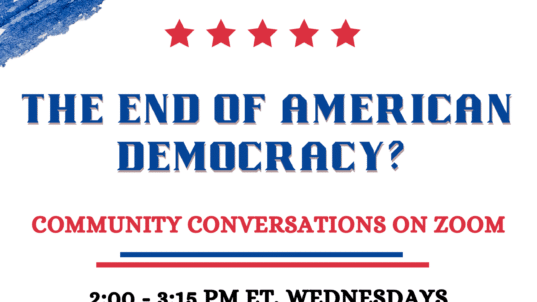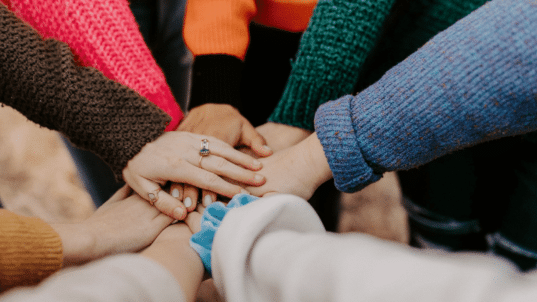Opportunities for discussion of IF materials present themselves in a variety of settings that are not directly organized by IF. Organizations are often looking for public interest programming and are accustomed to scheduling presentations at luncheons, conferences, and in-service training events.
I have been able to take advantage of such opportunities in settings provided by labor unions, community organizations, professional groups, religious denominations, and business organizations. In most cases the sequence has been to make a presentation concerning a specific IF report in an organizational setting and then organize follow-up opportunities for public discussion among interested organizational members.
The recent Democracy Convention in Madison, Wisconsin (August 24-28) provided yet another variation on how such public discussion opportunities may develop. I was asked to make a presentation on “democratic deliberation” at the Local Democracy Conference portion of the convention. The organizers of the event felt it would be difficult to undertake a full public discussion of a report in this environment, but did expect that I would refer to the report as sort of a case study within the context of discussion of citizen conversation processes and resources. I felt that they their assumption was reasonable and planned accordingly to wrap up my presentation with Possibility E (Democracy is a Conversation) from The United States’ Democratic Promise report.
Well a couple of funny things happened on the way to the execution of this modest plan. Nearly a hundred copies of the report and other IF materials were picked up at the IF table by convention attendees in the days preceding my presentation. And apparently the report was mentioned in other workshop sessions relative to its Constitutional reform and participatory content. This both provoked interest in the report and tended to steer those with the greatest citizen conversation interest to the deliberative democracy session. As most of us know from attending workshops that barely relate to agenda descriptions, this transparency and connectedness is no small thing.
This upshot was a small but very attuned session audience that came with thoughtful questions as “consumers” of deliberative democracy techniques and more familiarity with the report than I experience in many of our formal public conversation settings. As I suggested in a summary about the experience, this discussion would have been very difficult to intentionally organize. Perhaps the most unique thing about it was how participants used my case study presentation of Possibility E as the starting point for direct exploration of that possibility, the other possibilities, and the more general area of concern. This was a very unusual opportunity in that attendees had been, in essence, exploring the area of concern for several days prior to this session.
It was a worthwhile discussion, despite its rather short duration (two and half hours). The credit may be largely due a very receptive group with a disposition to try ideas on for size. At the same time, it may suggest that other “going public” and public discussion opportunities lurk within organizational settings that closely overlap with some of our report topics and that are grappling with the related governance issues in “real time”.



